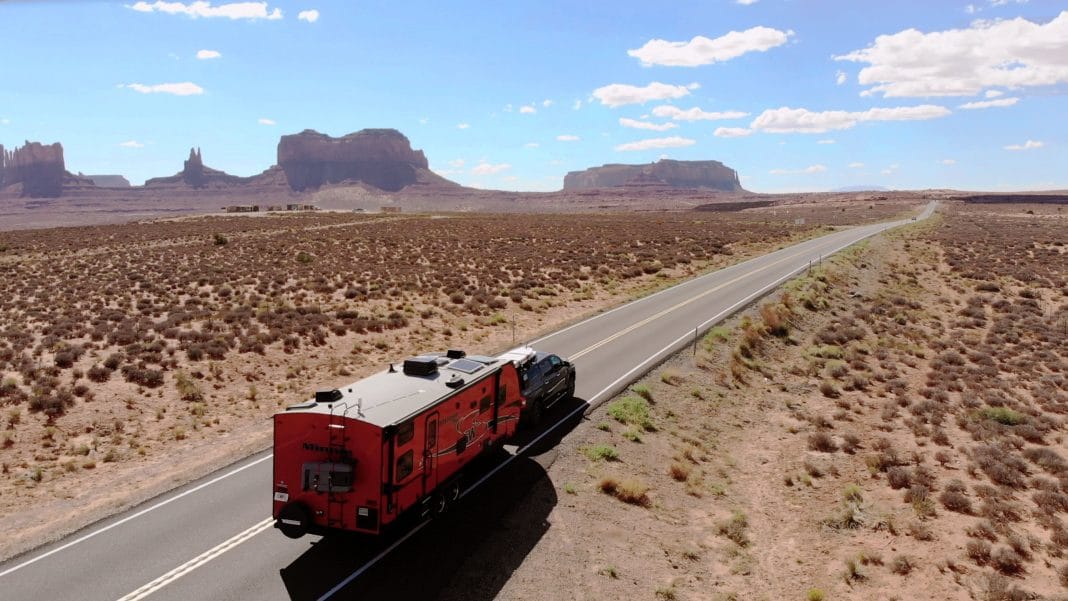A U.S. Congressman, a former U.S. Secretary of Transportation, and representatives of
vehicle users groups urged Congress to set realistic fuel-economy goals that do not
unreasonably raise prices nor diminish the utility of popular motor vehicles many consumers
need. At a mid-October news conference hosted by SUV Owners of America, SUVOA President
Barry McCahill said, “In the wake of high gas prices some want to legislate huge increases
in fuel economy, but have blinders on regarding the consequences to families, small
businesses, farmers and recreation enthusiasts, if pushed to extreme. We’re united today in
calling for a more reasonable way to give Americans more miles per gallon. “We’ve heard
endless rhetoric about ‘gas-guzzling SUVs and pickups,’ but nothing about the
transportation needs of tens of millions of Americans,” McCahill said. “Worse, those needs
are dismissed by some as irrelevant. The elected officials and groups here today represent
millions of Americans who feel their voices are very relevant in this debate.” McCahill, a
former official at the National Highway Traffic Safety Administration (NHTSA), was joined
by former U.S. Secretary of Transportation Rodney Slater who served in the Clinton
administration; Congressman Baron Hill (D-Indiana); Derrick Crandall, president and CEO,
American Recreation Coalition; and Austin Perez, director of Regulatory Relations, American
Farm Bureau Federation. Congressmen Hill and Congressman Lee Terry (R-Nebraska) are
co-sponsoring H.R. 2927, which would increase Corporate Average Fuel Economy (CAFE) by 30
to 40 percent, but with flexibility so consumer needs, jobs, safety and other factors are
considered carefully when NHTSA regulators set the standards. The Senate already passed
very different legislation that would force all vehicles to get 35 mpg (40-percent
increase). But unlike H.R. 2927, it would cause a massive change in the vehicle fleet
because it makes no distinction between cars and light trucks, or their real world uses.
“As a former Secretary of Transportation who dealt with fuel economy, I can tell you that
Congress should stick to the wisdom it had when CAFE standards where first enacted —
allowing for a more realistic standard for light trucks. Congress also had the wisdom to
let the experts at the Department of Transportation decide the details of each model year’s
fuel economy standard,” Secretary Slater said. Congressman Hill said, “HR 2927 presents a
real and difficult challenge to the automobile industry: Start making your cars, trucks and
sport-utility vehicles more fuel efficient and friendlier to the environment. Although
challenging, this bill is realistic. We must collectively move our country on a path toward
energy independence. But, in doing so, we must not jeopardize tens of thousands of American
jobs. “The bill I’ve sponsored, H.R. 2927, is attracting strong bipartisan support because
it continues the wise tradition of regulating trucks differently than cars and yet offers
what most Americans want — more miles per gallon,” Hill explained. A study by Lehman
Brothers warned that if the Senate bill becomes law, U.S. manufacturers that make most of
the vehicles needed by farmers and recreation enthusiasts would have to cut production of
large SUVs and pickup trucks by 60 percent. “Some are cheering that possibility. But, which
RV or boat owners are going to volunteer to give up vehicles that enable family fun
outdoors? Which farmers are going to be forced to make do with less?” McCahill asked. “And
why should they be forced to do so when Congressmen Hill and Terry have a better way to
accomplish all the same national goals?” According to Crandall, “CAFE rules caused the
demise of the family station wagon, formerly the mainstay for getting people and gear to
outdoor destinations. SUVs, minivans and pickup trucks emerged as passenger-car
substitutes, not because owners like paying more for gas, but because they value the
outdoor lifestyles these vehicles enable, like hunting, fishing, skiing, boating or
camping. “Those values still run strong, and should be respected and encouraged. From boat
dealers to campground operators, from RV manufacturers to ski rental shops, from retailers
selling outdoor goods to guides and outfitters, tens of thousands of businesses and
millions of jobs are supported by $400 billion in annual expenditures on recreation,”
Crandall added. SUVOA studied towability and documented that in the 1970s when CAFE first
became law, most passenger cars could tow a small fishing boat or camping trailer. Since
then, passenger cars gradually lost that ability; today, just one percent can tow the same
small boat. Farmers, ranchers and other Americans living in rural areas would be hard hit
if the provisions in the Hill-Terry bill do not prevail over the onerous Senate
fuel-economy mandates. “The nation is united in the desire to get much better fuel economy
and decrease dependence on imported oil. But, we are not a one-size-fits-all society as
some would like, and have differing transportation requirements that should be respected,”
McCahill said. “In addition, there are thousands of businesses — small and large — that
depend on light trucks — construction, landscapers, florists, utilities, painters and
carpenters. There’s a reason that even at three-dollars-a-gallon, half of all new vehicle
sales are still light trucks,” he added. “Affordability of new vehicles should also be a
consideration. Fuel-economy mandates pushed to extreme levels would add thousands of
dollars to the price of a new vehicle. Many would never experience the fuel savings because
they couldn’t afford to buy a new one, and those who could, probably would never re-coop
that savings at the gas pump,” McCahill said. “Let me be very clear. We are not opposed
whatsoever to pushing aggressively to improve the fuel economy of all vehicles. It’s a
strategic national imperative that we do so. But let’s do so in a common sense, flexible
way that makes sure all of our national priorities, economic considerations, consumer uses,
and safety are factored into the equation. H.R. 2927 is the only legislation in Congress
that does so,” he said. For more information: www.suvoa.com
SUV Groups Support H.R. 2927
Originally Published in Trailer Life Magazine

Do not have an account? Create New Account

